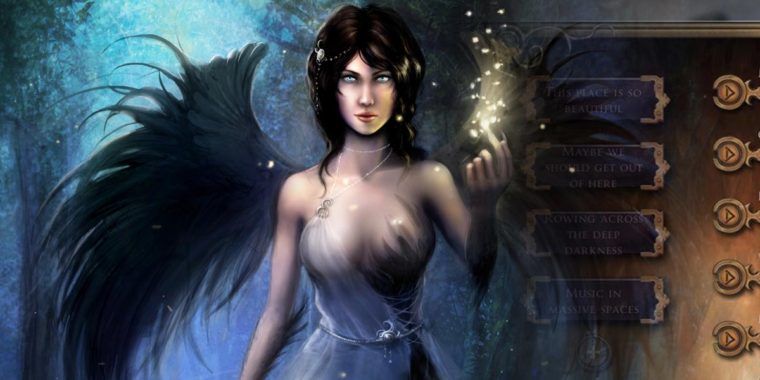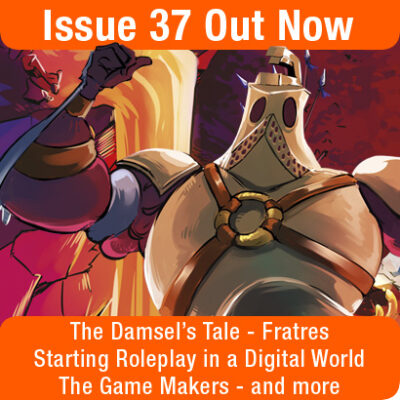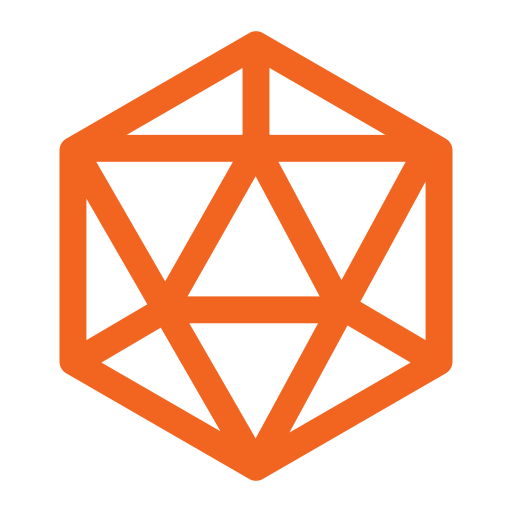This article originally appeared in Issue 10 of The Campaigner, published in 2014. The issue is still available as digital download or in limited print stock.
Interview by Matthew Lee (ML)
Sound can be a powerful tool. It can be used to evoke and direct emotion, or describe a place without using wordy prose. Adding sound into roleplay games isn’t a new concept, but Syrinscape makes the job infinitely easier with an accessible and simple tool. This issue we talk to Syrinscape creator Benjamin Loomes (BL) about the program, the company he has created, and what makes sound such an important part of the roleplay experience.
ML: Can you tell us a little bit about Syrinscape?
BL: The company produces the Syrinscape Fantasy Player, the Syrinscape Sci-fi Player and is about to release a Syrinscape SoundSet Creator. The fantasy and sci-fi players provide music for tabletop roleplay games which is non-repetitive.
We have a team consisting of myself (the Creative Director) and two other people in admin and creative roles, Anna and Karen. They produce, for instance, the advert found in the PAXAus brochure, make sure contracts are payed, all kinds of important stuff. We also have a business partner who has been funding the company. Also onboard are the Interaction Consortium, which is a Sydney-based web and application development company. They take care of the website, the server, the app, the releases, all that sort of stuff. So we have a largish team, made of people directly employed by Syrinscape as well as the Interaction Consortium, which is fantastic.
We also have Gill Luna doing all our sci-fi content. He had some fantastically successful Kickstarters to make 15 minute ambient music tracks that he is now breaking up and plugging it into the Syrinscape program.
ML: Where did the idea for a soundboard of effects and music for use in roleplay games come from?
BL: When I came back to gaming after a break for D&D 3.5, after working as a composer, singer and pianist, and having seen movies and computer games, I figured music was probably something that was missing from the table. So I started using music from CDs and computer games and things like that to create a bit of ambience. And then I thought about sound design, so I started making little 15 minute recordings of sound design, a little bit of music joined together, and they were pretty cool.
But the problem with these is that they start getting repetitive very quickly, especially in roleplay games where you stay in a single location for one or two hours. So by the ninth time you hear the same distinctive bird call, or market vendor shouting his prices, you start to notice those patterns.
The human brain is designed to notice patterns. We can recognise relationship and causality effects, the ear gets pulled to these and distracted. That’s the last thing we want the sound to do. Like the sounds in a movie, it should subliminally affect the emotional state of the audience, and give them an emotional que on how to interpret the images.
I started making longer and longer recordings, but it just wasn’t working right for me. So I thought, surely a computer is good at this sort of thing. At playing a sound from a pool and then randomly choosing another sample and waiting a randomised amount of time. Doing a whole lot of simultaneous tasks, together and independently. So I wrote a really simple version of Syrinscape in Python, and that work pretty well. I shared that online, and people just went mental for it. They wanted it on their iPad, or Android, and all sorts of other devices. Then came negotiations with business partners, funding, setup, redevelopment, release and success.
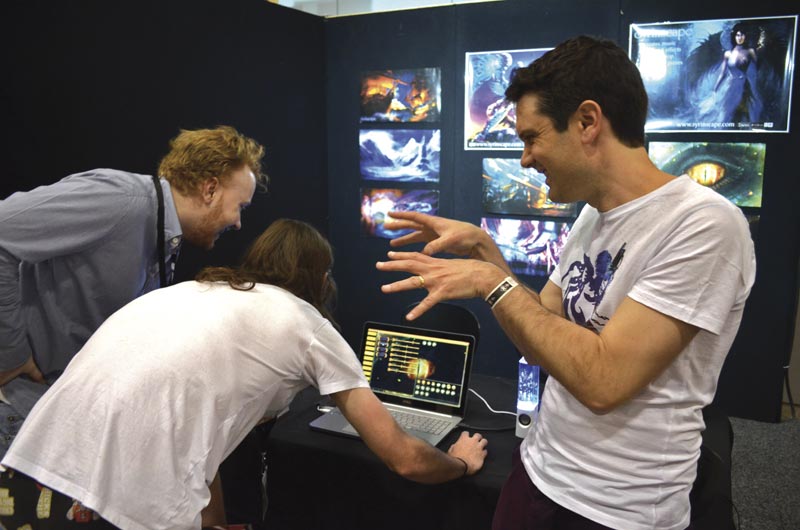
ML: What previous experience had you had with sound and sound design?
BL: I’m a composer, a Graduate of Composition from the University of Sydney, an experienced pianist and a professional singer. That’s my musical background.
ML: How much experience with roleplay games have you had?
BL: When I was very little, like ten years old, I started with the red box. I took the crayon and coloured in the numbers on the dice so I could see them, and have played roleplaying games my entire life ever since. I did have a break during my early 20’s when life sort of took over. But I am back into it and play consistently.
I now have a regular gaming group, the Dice Stormers, which you can see on YouTube broadcasting all out games, and who are all hilarious and fun. We have just done a live game to a packed out audience at PAXAus 2014. So yes, lots of experience.
ML: How do you go about creating sounds, and SoundSets?
BL: The best way to explain this will be with an example. Let’s say, the Dragon Battle. I write five full orchestral, riveting, powerful and impressive pieces of music. They play one after another, in random order.
Next I need a sound effect, like claw scratches. To create these I got some Duplo, which is oversized Lego, and scratched it on my kitchen floor making horrible screeching noises (that’s right, it’s Lego people!). I then cut apart these sounds into individual samples and handed it to the Syrinscape machine. Set all the parameters so they get played back with reverb, ambience, random positioning and distance placement.
Some sounds, like the crunching ground, came from Sounddogs, which is where I get some of my samples. Someone had made a great recording of gravel, it was very clean, there were no dogs barking or cars driving past in the background, so I used that. It is actually just a single loop that goes for about five minutes, and cross fades itself imperceptibly.
Sounds like the background wind can be on loops because they contain no unique noticeable elements, so they can just repeat.
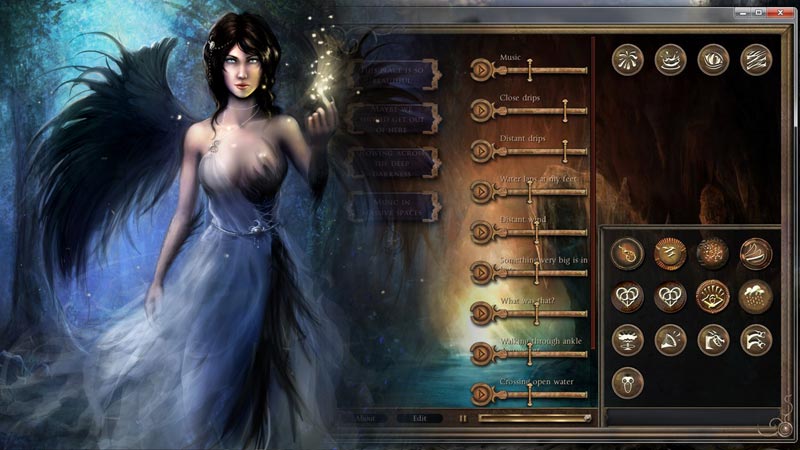
ML: How much involvement do you have in the development of the program, especially since it is outsourced?
BL: After I designed every aspect of the original Syrinscape and wrote it in Python we then pulled it apart. Together we argued about the redesign and then went about actually redesigning it. I wrote some of the code, but the main bulk of the work was done by the fantastic and talented guys at the Interaction Consortium.
ML: Can users introduce their own sounds into the program?
BL: Yes. The Syrinscape SoundSet Creator was in Beta during October and November and should be released some time in December 2014 or January 2015. Users will be able to take all the content we make and mix it with their own creations. For instance, if you have a town brawl with five rollicking Irish jigs going through that, and you have a CD of a fantastic Irish band, you can introduce those songs. For legal reasons we can’t give that song to you, but because you own the disc, you can include it for use in a private setting.
Article continues in Issue 10. The issue is still available as digital download or in limited print stock.


